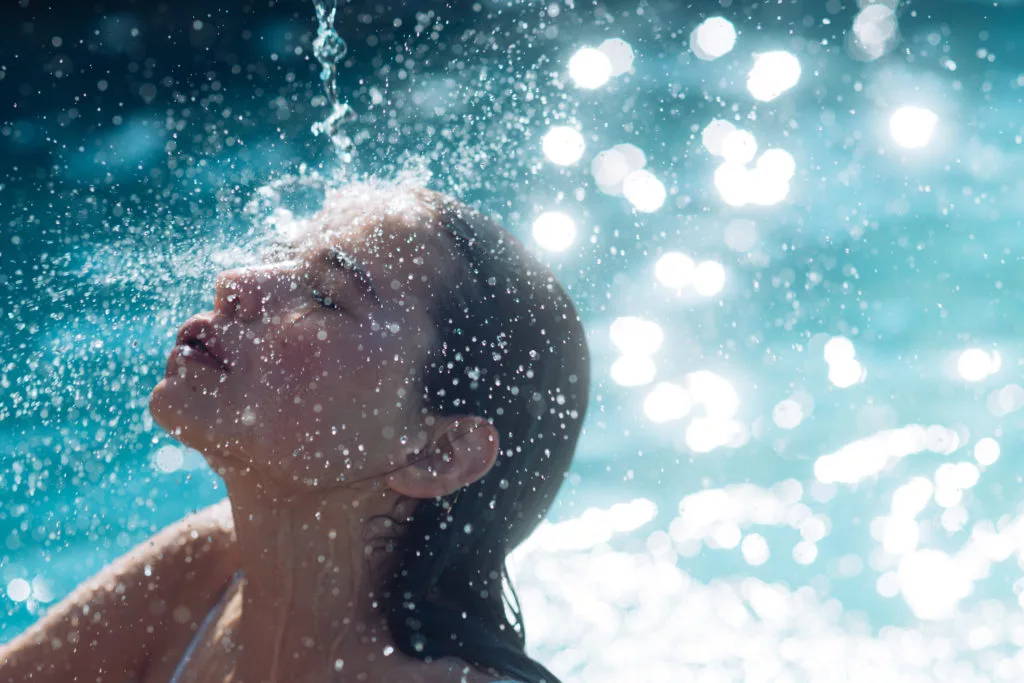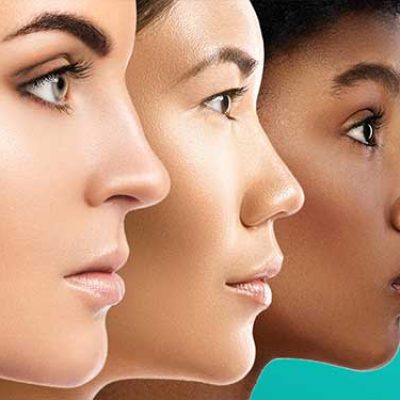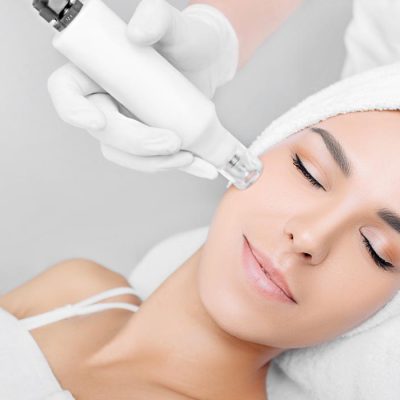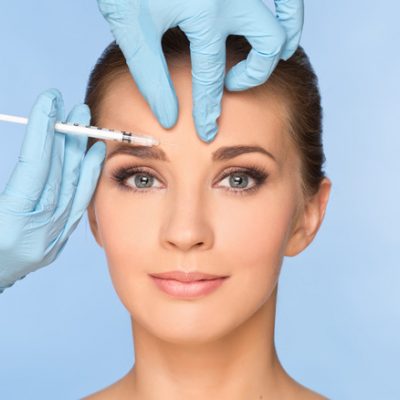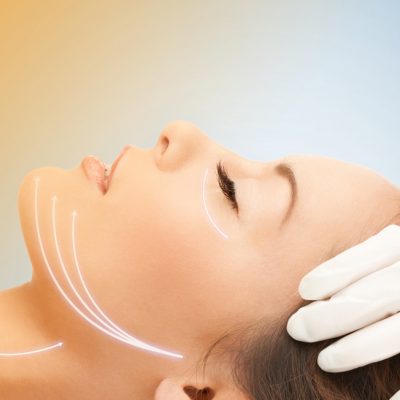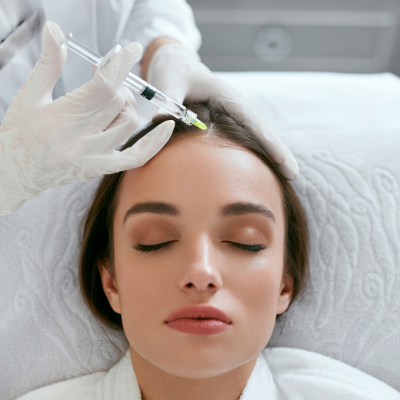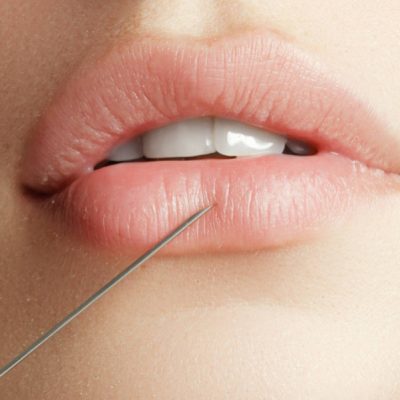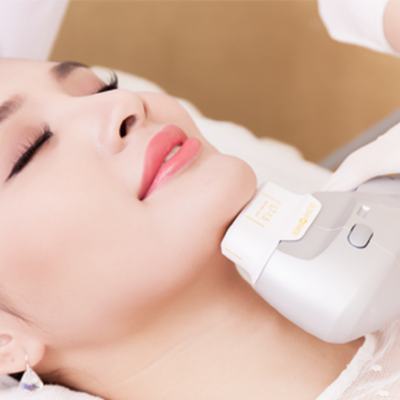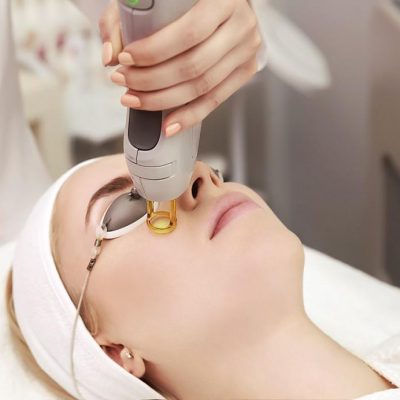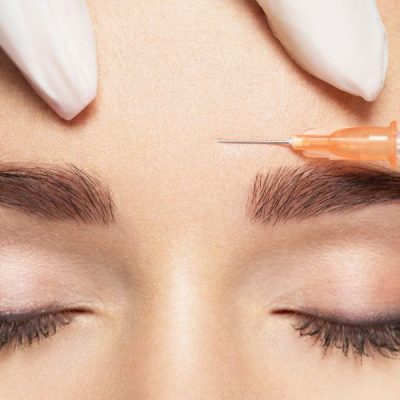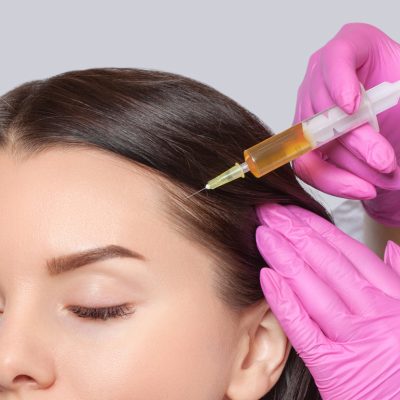Hydration and moisturization are two important aspects of skincare that contribute to the health and appearance of your skin. Though these terms are often used interchangeably, they are distinct concepts and have different roles in skin maintenance. Here’s a closer look at each.
Facial Treatment Dubai | Hydrafacial Dubai
Hydration
Hydration refers to the amount of water in your skin cells. Proper hydration is essential for maintaining the skin’s health and appearance.
When your skin is well-hydrated, it appears plump, radiant, and less prone to the development of fine lines and wrinkles. Hydrated skin also has a better ability to heal and regenerate itself.
The source of hydration for the skin includes water intake, the moisture in the air, and topical skincare products. Ingredients like hyaluronic acid, aloe vera, glycerin, and certain types of fruit acids are commonly used in skincare products to boost skin hydration.
benefits of hydration
Staying hydrated is essential for maintaining good health and well-being. Here are some benefits of hydration:
- Optimal bodily function: Water is necessary for various bodily functions, including digestion, absorption, circulation, and transportation of nutrients. It helps maintain the balance of bodily fluids, regulates body temperature, and supports overall organ function.
- Improved physical performance: Proper hydration is crucial for athletic performance and physical endurance. When you’re adequately hydrated, your muscles and joints are lubricated, allowing for better performance, reduced fatigue, and improved stamina.
- Cognitive function: Dehydration can negatively impact cognitive abilities, including concentration, alertness, and short-term memory. By staying hydrated, you can enhance your mental clarity, focus, and overall cognitive function.
- Energy boost: Dehydration can lead to feelings of fatigue and decreased energy levels. Drinking enough water helps to combat fatigue and keeps you feeling energized throughout the day.
- Digestive health: Sufficient hydration supports healthy digestion by preventing constipation and promoting regular bowel movements. Water aids in the breakdown of food, absorption of nutrients, and the overall smooth functioning of the digestive system.
- Weight management: Drinking water can be beneficial for weight management. It helps increase satiety, reducing the likelihood of overeating. Sometimes, people mistake thirst for hunger, leading to unnecessary calorie intake. Staying hydrated can help control appetite and support weight loss or weight maintenance efforts.
- Healthy skin: Proper hydration contributes to healthy, glowing skin. Water helps maintain skin elasticity, flushes out toxins, and promotes cell regeneration, leading to a clearer complexion and reduced risk of skin problems like dryness, acne, and premature aging.
- Joint and muscle health: Water acts as a lubricant for joints and helps cushion the surrounding tissues. It promotes proper joint function and reduces the risk of muscle cramps and sprains.
- Kidney function: Adequate hydration is essential for maintaining proper kidney function. It helps flush out waste products and toxins from the body, reducing the risk of kidney stones and urinary tract infections.
- Temperature regulation: Water plays a vital role in regulating body temperature. It helps release heat through sweat, which cools the body down and prevents overheating.
Remember that individual hydration needs may vary based on factors such as age, activity level, climate, and overall health. It’s generally recommended to drink enough water throughout the day to satisfy your thirst and maintain pale yellow urine color as an indicator of adequate hydration.
How can I increase my body hydration
To increase your body hydration, you can follow these tips:
- Drink enough water: The most straightforward way to increase body hydration is to drink an adequate amount of water throughout the day. Aim for at least 8 glasses of water, or about 2 liters, as a general guideline. However, individual water needs may vary based on factors like activity level, climate, and overall health.
- Eat hydrating foods: Incorporate foods with high water content into your diet. Fruits and vegetables like watermelon, cucumbers, oranges, strawberries, celery, and lettuce are excellent choices. These foods not only provide hydration but also offer essential nutrients and dietary fiber.
- Monitor caffeine and alcohol intake: Both caffeine and alcohol have diuretic effects, which means they can increase urine production and potentially contribute to dehydration. While moderate consumption may not pose significant issues, excessive intake can lead to fluid loss. Be mindful of your caffeine and alcohol intake and balance them with adequate water consumption.
- Include electrolytes: Electrolytes play a crucial role in maintaining hydration and proper bodily functions. They help regulate fluid balance, muscle function, and nerve impulses. Include electrolyte-rich foods and beverages in your diet, such as coconut water, sports drinks, bananas, avocados, and leafy greens. These can help replenish electrolytes lost through sweating.
- Monitor your urine color: Monitoring the color of your urine can give you an indication of your hydration status. Pale yellow or clear urine usually indicates good hydration, while dark yellow or amber-colored urine may suggest dehydration. Aim for light-colored urine as a general guideline.
- Use a humidifier: Dry indoor air can contribute to dehydration. Using a humidifier in your home or workplace can help add moisture to the air, promoting better hydration.
- Be mindful during physical activity: When engaging in physical activities or exercising, drink water or a sports drink before, during, and after your workout to maintain hydration. Adjust your fluid intake based on the duration and intensity of your exercise.
- Pay attention to signs of thirst: Listen to your body and drink water when you feel thirsty. Thirst is a natural mechanism that indicates your body’s need for hydration. It’s important not to ignore thirst cues and respond promptly by drinking fluids.
Remember, maintaining consistent hydration is a habit that requires conscious effort. By incorporating these practices into your daily routine, you can increase your body hydration and support overall health and well-being.

Moisturization
Moisturization, on the other hand, involves creating a barrier on the skin’s surface to lock in moisture and prevent water loss. This barrier helps protect the skin from environmental factors such as wind, heat, and cold, which can strip the skin of its natural oils, leading to dryness and irritation.
Moisturizers often include ingredients like ceramides, fatty acids, and cholesterol, which are part of the skin’s natural barrier. They might also contain occlusive ingredients like waxes, oils, and silicones to prevent water loss, and humectants like hyaluronic acid or glycerin to draw moisture into the skin.
benefits of Moisturization
Moisturization, especially when it comes to skincare, offers several benefits for the health and appearance of your skin. Here are some key benefits of moisturization:
- Hydration: The primary purpose of moisturizers is to hydrate the skin. They help to replenish and retain moisture, preventing dryness and maintaining a healthy moisture balance. Well-hydrated skin appears plump, smooth, and radiant.
- Skin barrier protection: Moisturizers form a protective barrier on the surface of the skin, helping to prevent water loss and protect against environmental stressors, such as pollutants, harsh weather conditions, and UV radiation. A strong and intact skin barrier is essential for maintaining healthy and resilient skin.
- Soothing and calming effects: Moisturizers often contain ingredients that have soothing and calming properties, such as aloe vera, chamomile, or oat extract. These ingredients can help alleviate redness, irritation, and inflammation, making moisturization particularly beneficial for sensitive or irritated skin.
- Anti-aging effects: Regular moisturization can help reduce the appearance of fine lines and wrinkles. When the skin is adequately hydrated, it appears plumper and more youthful. Some moisturizers also contain ingredients like antioxidants, peptides, or retinol, which can further support collagen production and improve the overall texture and firmness of the skin.
- Improved skin texture and smoothness: Dry skin can feel rough, flaky, and uneven. Moisturizers help to smoothen the skin’s texture, promoting a softer and more supple feel. Regular use of moisturizers can also help to reduce the occurrence of dry patches and rough areas.
- Enhances skin elasticity: Well-moisturized skin tends to have better elasticity, which means it can stretch and bounce back more easily. Adequate moisture content in the skin helps to maintain its natural elasticity, reducing the likelihood of developing stretch marks and promoting a more youthful appearance.
- Prepares the skin for makeup: Applying moisturizer before makeup application can create a smooth canvas for your cosmetics. It helps makeup to glide on more easily, prevents product clinging to dry patches, and contributes to a more flawless and long-lasting makeup application.
It’s important to choose a moisturizer that suits your skin type and addresses any specific concerns you may have. Regular and consistent use of moisturizers, both on the face and body, can help maintain optimal skin health, enhance its appearance, and provide long-term benefits.
What is the best skin Moisturization
The best skin moisturization routine involves a combination of factors to ensure optimal hydration and skin health. Here are some key steps to achieve effective skin moisturization:
- Cleanse properly: Start by cleansing your skin with a gentle, pH-balanced cleanser suitable for your skin type. Cleansing removes dirt, oil, and impurities, allowing moisturizers to penetrate better.
- Exfoliate regularly: Exfoliation helps remove dead skin cells and promotes cell turnover, allowing moisturizers to be more effective. Choose a gentle exfoliator appropriate for your skin type, whether chemical (e.g., AHAs or BHAs) or physical (e.g., gentle scrubs).
- Apply moisturizer to damp skin: After cleansing or showering, pat your skin dry gently, leaving it slightly damp. Moisturizers tend to work best when applied to damp skin as they can lock in moisture effectively.
- Choose the right moisturizer: Select a moisturizer suitable for your skin type and concerns, considering the factors mentioned earlier. Look for ingredients like hyaluronic acid, ceramides, and antioxidants that provide hydration, strengthen the skin barrier, and offer additional benefits.
- Use appropriate techniques: Apply your moisturizer using gentle upward strokes, avoiding excessive rubbing or tugging on the skin. Be sure to cover the entire face, neck, and other areas that may require hydration, such as the hands or body.
- Don’t forget the eye area: The skin around the eyes is delicate and prone to dryness. Use a separate eye cream or choose a moisturizer specifically formulated for the eye area to provide adequate hydration and address concerns like fine lines or dark circles.
- Consider layering products: Depending on your skin’s needs, you can layer products to enhance moisturization. For example, you can apply a hydrating serum before your moisturizer or use facial oils to seal in moisture.
- Protect from the sun: UV rays can contribute to skin dryness and damage. Incorporate sunscreen with broad-spectrum SPF into your daily routine, applying it over your moisturizer to ensure comprehensive protection.
- Stay hydrated internally: Remember that proper hydration starts from within. Drink an adequate amount of water throughout the day to support overall skin health and hydration.
- Adjust your routine as needed: Your skin’s needs may change with factors like weather, hormonal fluctuations, or lifestyle changes. Pay attention to how your skin responds to your moisturization routine and make adjustments accordingly.
Remember, consistency is key when it comes to moisturization. Establishing a regular skincare routine and choosing products suitable for your skin type and concerns will help maintain optimal hydration and promote healthy, nourished skin.
The Importance of Both Hydration and Moisturization
Understanding the difference between hydration and moisturization can help you choose the right skincare products for your needs.
For example, if your skin feels tight or dry, it might be dehydrated and need products with hydrating ingredients. If your skin is rough or flaky, it may be lacking in moisture and might benefit from a moisturizer to seal in hydration and protect the skin barrier.
The best skincare regimen includes both hydrating and moisturizing products. Hydrating products are usually lighter and water-based, and they should be applied first. Moisturizing products, which are typically heavier, should be applied after to seal in the hydration.
In conclusion, both hydration and moisturization are crucial for maintaining healthy, glowing skin. By understanding their roles and using appropriate skincare products, you can maintain a balanced and effective skincare routine.
FAQ
What is the difference between hydration and moisturization?
Hydration and moisturization are two related but distinct concepts when it comes to skincare:
- Hydration: Hydration refers to the water content within the skin cells and the overall water balance in the body. It involves increasing and maintaining the moisture levels from within by drinking fluids. When you’re properly hydrated, your skin cells have a higher water content, which contributes to a plump, supple, and healthy complexion. Hydration is essential for overall health and helps maintain bodily functions beyond just the skin.
- Moisturization: Moisturization, on the other hand, is the process of applying external products, such as moisturizers or emollients, to the skin’s surface to improve its hydration and prevent moisture loss. Moisturizers are formulated to create a physical barrier on the skin, sealing in existing moisture and preventing evaporation. They often contain ingredients like humectants (e.g., hyaluronic acid, glycerin) that draw moisture from the environment or deeper layers of the skin to hydrate the upper layers. Additionally, moisturizers may also contain occlusive substances (e.g., petrolatum, mineral oil, shea butter) that help lock in moisture by forming a protective layer on the skin’s surface.
In summary, hydration focuses on maintaining water balance within the body and skin cells, while moisturization involves applying external products to the skin to improve its hydration levels and prevent moisture loss. Both hydration and moisturization are important for maintaining healthy skin, and a combination of internal hydration through adequate fluid intake and external moisturization through skincare products is typically recommended for optimal skin health.
Is drinking water enough to keep my skin hydrated?
While drinking water is important for overall hydration and maintaining bodily functions, it may not directly translate to hydrated skin. The skin’s hydration levels are influenced by various factors, including environmental conditions, skincare routine, and genetics.
When you drink water, it is distributed throughout the body to maintain proper bodily functions, and the skin receives its share of hydration. However, the water you consume is distributed to various organs and tissues, and the skin may not always receive a significant amount. Additionally, the outermost layer of the skin, called the stratum corneum, acts as a barrier to prevent excessive water loss. While hydration from within can support the overall health of the skin, it may not be sufficient to address specific skin hydration concerns.
To directly hydrate the skin, applying moisturizers and hydrating skincare products topically is more effective. Moisturizers contain ingredients that can help replenish and retain moisture in the skin. They often include humectants, which attract and hold water to the skin, as well as occlusive ingredients that create a barrier to prevent water loss through evaporation. These topical products can provide targeted hydration to the skin, improving its moisture levels, smoothness, and overall appearance.
In summary, while drinking water is important for overall hydration and bodily functions, using topical moisturizers and skincare products is more effective in directly hydrating and nourishing the skin. A combination of internal hydration through proper fluid intake and external moisturization through skincare can help maintain optimal skin hydration.
Can you over hydrate or over-moisturize your skin?
When it comes to hydration and moisturization, it is generally uncommon to overhydrate or over-moisturize the skin. However, there are a few considerations to keep in mind:
- Overhydration: While it is possible to overhydrate the body by excessively consuming water, the risk of overhydrating the skin through topical methods is minimal. The skin has a natural barrier that helps regulate moisture levels, and excess water or moisture from skincare products is typically absorbed or evaporates without causing harm. However, it’s important to note that excessively wetting or soaking the skin for prolonged periods, suchas taking long baths or showers, can strip the skin of its natural oils and disrupt its moisture balance. This can lead to dryness, irritation, or even skin conditions like dermatitis. It’s generally recommended to maintain a balance by avoiding excessive water exposure and following a gentle skincare routine.
- Over-moisturization: While it’s rare to over-moisturize the skin, it’s possible to experience adverse effects if heavy or occlusive moisturizers are used excessively or on certain skin types. These moisturizers can create a barrier on the skin’s surface, trapping moisture but also potentially blocking the pores and leading to breakouts or skin congestion, especially for those with oily or acne-prone skin. It’s important to choose moisturizers suitable for your skin type and use them in moderation. If you notice any signs of skin irritation or clogged pores, it may be necessary to adjust your moisturizer or reduce the frequency of application.
In general, maintaining a balanced approach to hydration and moisturization is key. Listen to your skin’s needs and adjust your routine accordingly. If you have specific concerns or questions about your skin, it’s always a good idea to consult with a dermatologist or skincare professional.
Should I moisturize even if I have oily skin?
Yes, moisturizing is important even if you have oily skin. Many people with oily skin mistakenly believe that they don’t need to moisturize because their skin already produces excess oil. However, skipping moisturizer can actually lead to imbalances in the skin’s moisture levels and exacerbate oiliness.
When you cleanse your skin or use harsh products to remove oil, you may strip away the skin’s natural moisture. In response, your skin may produce even more oil to compensate for the loss, leading to a cycle of excessive oiliness. By using a lightweight, oil-free moisturizer, you can help balance the skin’s moisture levels and prevent dryness without adding unnecessary heaviness or greasiness.
Moisturizers designed for oily skin are typically non-comedogenic, meaning they won’t clog your pores or contribute to breakouts. Look for oil-free or gel-based moisturizers that contain ingredients like hyaluronic acid or glycerin, which can help hydrate the skin without adding extra oil. These types of moisturizers can provide the necessary hydration to keep your skin healthy, while also helping to regulate oil production.
Remember that everyone’s skin is unique, so it may take some trial and error to find the right moisturizer that works well for your oily skin. Additionally, incorporating other skincare practices like regular exfoliation and using products formulated for oily or acne-prone skin can further support a balanced and healthy complexion.

